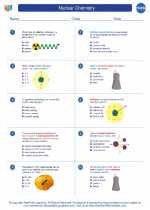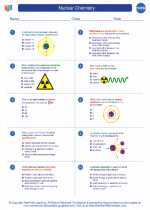Minerals
Minerals are naturally occurring inorganic substances with a specific chemical composition and a crystalline structure. They are the building blocks of rocks and are essential for the formation of the Earth's crust. Minerals can be found in a variety of environments, including in the earth's crust, in the ocean, and even in the human body.
Characteristics of Minerals
Minerals possess several key characteristics:
- Inorganic: Minerals are not formed by living organisms and are, therefore, inorganic in nature.
- Naturally Occurring: Minerals are naturally formed through geological processes such as crystallization, precipitation, and cooling of molten rock.
- Specific Chemical Composition: Each mineral has a specific chemical formula that defines its composition.
- Crystalline Structure: Minerals are typically arranged in a regular, repeating geometric pattern, giving them a crystalline structure.
Classification of Minerals
Minerals can be classified into several groups based on their chemical composition and physical properties. The main mineral groups include:
- Silicates: The largest and most diverse group of minerals, containing silicon and oxygen atoms in their chemical structure.
- Carbonates: Minerals containing the carbonate ion (CO3) as a fundamental unit.
- Oxides: Minerals composed of oxygen and one or more metal elements.
- Sulfides and Sulfates: Minerals containing sulfur as a major component.
- Native Elements: Minerals that are composed of a single element, such as gold, silver, and copper.
Properties of Minerals
Minerals can be identified and distinguished from one another based on their physical and chemical properties:
- Color: The visible color of a mineral, although it may vary due to impurities.
- Luster: The way light reflects off the surface of a mineral, categorized as metallic or non-metallic.
- Hardness: The resistance of a mineral to scratching, measured on the Mohs scale from 1 (softest, talc) to 10 (hardest, diamond).
- Cleavage and Fracture: The way a mineral breaks along planes of weakness (cleavage) or irregularly (fracture).
- Specific Gravity: The density of a mineral compared to the density of water.
Uses of Minerals
Minerals play a critical role in various industries and everyday life:
- Construction: Minerals like quartz, feldspar, and calcite are essential components of building materials such as concrete, glass, and ceramics.
- Energy Production: Coal, natural gas, and uranium are examples of minerals used for energy production.
- Manufacturing: Metals such as iron, copper, and aluminum are crucial for manufacturing machinery, electronics, and transportation vehicles.
- Health and Nutrition: Minerals such as calcium, potassium, and iron are vital for human health and nutrition.
Studying Minerals
When studying minerals, it's important to consider the following aspects:
- Identification: Learn to identify minerals based on their physical properties and distinguish between different mineral groups.
- Formation: Understand the geological processes that lead to the formation of minerals, including crystallization, precipitation, and metamorphism.
- Uses and Applications: Explore the practical applications of minerals in various industries and their significance in everyday life.
- Conservation and Sustainability: Consider the environmental impact of mineral extraction and the importance of sustainable practices in mining and mineral usage.
By understanding the characteristics, classification, properties, and uses of minerals, students can gain a comprehensive knowledge of these essential natural resources.
[Mineral] Related Worksheets and Study Guides:
.◂Chemistry Worksheets and Study Guides High School. Nuclear Chemistry

 Worksheet/Answer key
Worksheet/Answer key
 Worksheet/Answer key
Worksheet/Answer key
